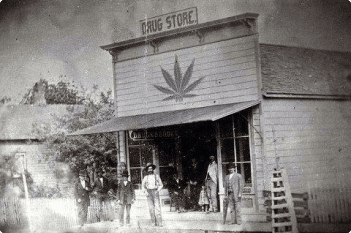What is the State of Marijuana in South Carolina?
Both medical and recreational use of cannabis is illegal in South Carolina. Also, marijuana has not been decriminalized in the state. An attempt to legalize medical marijuana in 2022 failed after the South Carolina Compassionate Care Act (S. 150) died on the floor of the House. The Act would have created a medical marijuana program and allowed access to medical cannabis by patients with certain debilitating medical conditions. Such conditions include hepatitis C, glaucoma, cancer, post-traumatic stress disorder (PTSD), and medical conditions that cause debilitating pain, seizures, or severe nausea.
While attempts are being made to legalize medical cannabis, legalizing recreational cannabis in South Carolina does not seem like a near possibility. In 2014, the state's Senate unanimously passed Julian's Law to allow patients diagnosed with severe forms of epilepsy to possess and use low-THC CBD oil with no more than 0.9% THC and at least 15% CBD. However, a patient must obtain certification from a licensed physician to legally use low-THC CBD oil in the state.
How has Marijuana Affected the South Carolina Economy?
Although marijuana remains illegal in South Carolina, there is a general belief that legalizing it will improve the state's economy. The few proponents of marijuana legalization in the state argue that legalizing cannabis would boost the state's economy and create several jobs for residents. Considering the revenues made from cannabis sales in states that have legalized marijuana, it is said that South Carolina could potentially generate tens of millions of dollars in new tax revenue every year if it legalized cannabis.
According to a report by the Tax Foundation, South Carolina's annual potential cannabis tax revenue stands at almost $97 million. It is also believed that legalizing marijuana in South Carolina will help save taxpayers money, considering the millions of dollars spent annually on legal costs associated with marijuana-related arrests and prosecution of such cases.
What is the Marijuana Crime Rate in South Carolina?
South Carolina ranks as one of the states with the most arrests for marijuana-related crimes in the United States. According to a report by the American Civil Liberties Union (ACLU), law enforcement made 38,289 marijuana-related arrests in 2018 in South Carolina; 34,229 of these arrests were for illegal cannabis possession, accounting for 48% of all drug arrests in the state. The ACLU report revealed that marijuana possession arrests in South Carolina increased by 52.8% between 2010 and 2018.
Data available in the FBI's Crime Data Explorer shows that 13,709 marijuana possession and 1,201 marijuana sales arrests were made in South Carolina in 2019. In 2020, the numbers of arrests for cannabis possession and sale declined to 10,839 and 1,160, respectively. The number of marijuana-related arrests further decreased in 2021, with 8,893 marijuana possession arrests and 1,000 marijuana sale arrests. However, marijuana arrest figures swung back up in 2022 and 2023. In 2022, there were 11,142 arrests for marijuana possession as well as 1,301 for marijuana sales. The next year, marijuana possession and sales arrests dipped slightly to 10,325 and 1,185 respectively.
What is the History of South Carolina Marijuana?
While cannabis is still illegal in South Carolina, there have been a few attempts to legalize medical marijuana. In 2014, the state's Senate enacted Julian's Law, a restrictive law permitting patients diagnosed with severe epilepsy in South Carolina to use low-THC CBD oil with 0.9% THC or less and at least 15% CBD.
The most recent attempt at legalizing medical cannabis in the state was in 2020. The state Legislature had introduced the South Carolina Compassionate Act to allow patients with certain debilitating health issues to possess and use medical cannabis for treatment. Although the Act proposed to regulate medical marijuana at every stage, it did not see the light of day. While it passed in the Senate on February 9, 2022, it died on the floor of the House on May 4, 2022. Rep. John McCravy argued that the Act was a revenue-raising bill and was not permitted to originate in the Senate. Speaker Pro Tem Tommy, who is a tenacious opponent of cannabis legalization, ruled in favor of Rep. John's motion. While there was an appeal to that motion, the South Carolina Compassionate Act was killed in a 59-55 vote on the floor of the state's House.

Cultivation of marijuana in the United States, the early 17th century.




